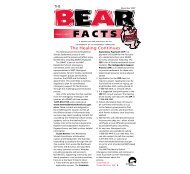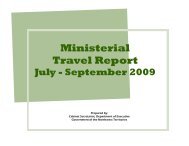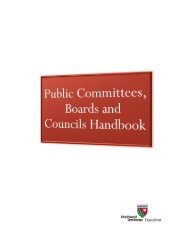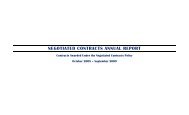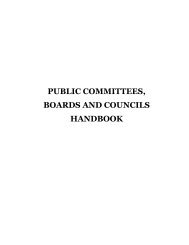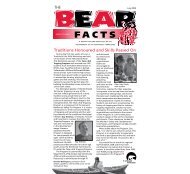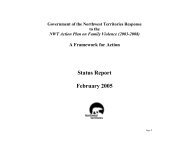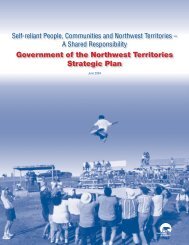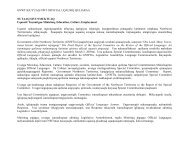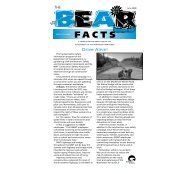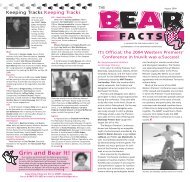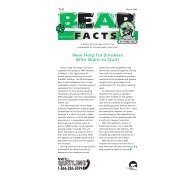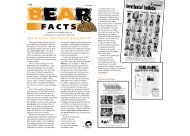Act Now - The Report of the WCB Legislative Review Panel to the
Act Now - The Report of the WCB Legislative Review Panel to the
Act Now - The Report of the WCB Legislative Review Panel to the
- No tags were found...
Create successful ePaper yourself
Turn your PDF publications into a flip-book with our unique Google optimized e-Paper software.
<strong>The</strong> amount paid by an employer also depends on <strong>the</strong> amount <strong>of</strong> <strong>the</strong>ir assessable payroll.That is, <strong>the</strong> <strong>to</strong>tal wages, overtime, allowances, etc. <strong>the</strong> employer pays <strong>to</strong> <strong>the</strong>ir workers up<strong>to</strong> <strong>the</strong> legislated maximum (YMIR currently set at $63,350).3.7.1 Assessable PayrollSome stakeholders suggested <strong>the</strong> definition <strong>of</strong> assessable payroll should be changed <strong>to</strong>exclude certain employee benefits such as vacation travel assistance. <strong>The</strong> <strong>Panel</strong> does notagree with <strong>the</strong> suggestion. Workers should be compensated on <strong>the</strong> value <strong>of</strong> <strong>to</strong>talremuneration received up <strong>to</strong> <strong>the</strong> legislated maximum set for YMIR.<strong>The</strong> <strong>Panel</strong> should also state that whatever amount is considered assessable payroll for <strong>the</strong>purposes <strong>of</strong> paying assessments should be <strong>the</strong> same amount used when calculating <strong>the</strong>financial compensation entitlements <strong>of</strong> an injured worker.3.7.2 Assessments for Extra-terri<strong>to</strong>rial Workers<strong>The</strong> <strong>Panel</strong> was asked <strong>to</strong> consider payment <strong>of</strong> assessments <strong>to</strong> <strong>the</strong> <strong>WCB</strong> for workers whonormally work in o<strong>the</strong>r jurisdictions but are working in <strong>the</strong> NWT or Nunavut for a shorttime.Stakeholders provided examples in <strong>the</strong> trucking and o<strong>the</strong>r industries <strong>of</strong> a NWT/Nunavutemployer being required <strong>to</strong> pay assessments <strong>to</strong> <strong>the</strong> NWT/Nunavut <strong>WCB</strong> and also <strong>to</strong> <strong>the</strong><strong>WCB</strong> in ano<strong>the</strong>r jurisdiction for employees who were temporarily doing work in tha<strong>to</strong><strong>the</strong>r jurisdiction. We also heard about employers based outside <strong>the</strong> NWT/Nunavutwhose workers were working temporarily in <strong>the</strong> NWT/Nunavut. Again, <strong>the</strong> employerwas paying assessments <strong>to</strong> both <strong>the</strong>ir home jurisdiction and <strong>the</strong> NWT/Nunavut. Inessence, employers are paying duplicate assessments.This is a complicated issue that cannot be addressed by legislative changes in onejurisdiction.<strong>WCB</strong> <strong>Legislative</strong> <strong>Review</strong> <strong>Panel</strong> <strong>Report</strong> Page 65 <strong>of</strong> 128December, 2001



